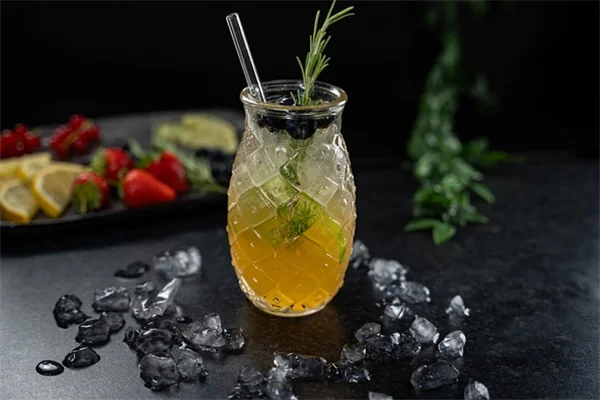Phenylephrine Doesn't Work? FDA Panel Reveals Shocking Truth About Common Decongestants
Does phenylephrine actually work as a decongestant? The answer is clear: No, oral phenylephrine doesn't relieve nasal congestion according to recent FDA findings. We've all been there - standing in the pharmacy aisle grabbing Sudafed PE or Benadryl Allergy Plus Congestion, thinking we're getting real relief. But here's the kicker: that main ingredient you've been relying on? It's about as effective as a placebo when taken by mouth at recommended doses. The FDA advisory panel reviewed all available data and confirmed what some doctors have suspected for years - you're basically swallowing expensive sugar pills. But don't toss your entire medicine cabinet just yet! While phenylephrine fails the test, there are other proven ways to fight congestion that actually work. Let's break down what you need to know to breathe easy this cold season.
E.g. :ADHD Medications and Heart Health: What New Research Reveals
Advertisement
- 1、That Decongestant in Your Medicine Cabinet? It Might Not Work
- 2、What Actually Works for Nasal Congestion
- 3、The Bigger Picture: Multi-Symptom Medications
- 4、Making Smart Choices at the Pharmacy
- 5、The Future of Cold Medications
- 6、The Surprising Science Behind Why Some Medications Fail
- 7、Beyond the Medicine Cabinet: Lifestyle Factors That Help
- 8、The Business Behind Cold Medications
- 9、Global Perspectives on Congestion Relief
- 10、Practical Tips for Cold Season
- 11、FAQs
That Decongestant in Your Medicine Cabinet? It Might Not Work
The Shocking Truth About Phenylephrine
You know that little red pill you've been taking for stuffy noses? Turns out it might be about as useful as a chocolate teapot. The FDA advisory panel just dropped a bombshell: phenylephrine, the active ingredient in popular meds like Sudafed PE and Benadryl Allergy Plus Congestion, doesn't actually work when taken orally.
Here's the kicker - we're not talking about some obscure drug here. This stuff is in dozens of medications lining pharmacy shelves across America. I've personally bought these pills more times than I can count during cold season. The panel reviewed all the available research and concluded that at recommended doses, you might as well be swallowing sugar pills.
Why More Isn't Better
Now you might be thinking, "Can't I just take extra pills to make it work?" Hold your horses there, cowboy! The panel specifically warned against this because:
| Dosage Increase | Effectiveness | Risks |
|---|---|---|
| Standard dose (10mg) | No better than placebo | Mild blood pressure increase |
| Higher doses | Still ineffective | Dangerous blood pressure spikes |
Dr. Armand from Mass General put it perfectly: "It's like adding more water to a broken hose - you're just making a bigger mess without fixing the problem." The scary part? These blood pressure effects could be particularly dangerous for folks with hypertension or glaucoma.
What Actually Works for Nasal Congestion
 Photos provided by pixabay
Photos provided by pixabay
The Dynamic Duo: Hydration and Massage
Before you reach for any medication, try these simple tricks first:
Water is your best friend when you're congested. I know, I know - drinking more sounds about as exciting as watching paint dry. But here's why it works: proper hydration thins out that nasty mucus clogging up your sinuses. Think of it like putting water in a ketchup bottle - suddenly everything flows much better!
And here's a pro tip from Dr. Bharati that changed my life: gentle sinus massage. Just use your fingertips to apply light pressure around your nose, forehead, and cheekbones. It's like giving your face a mini workout, and it really helps with drainage. My grandma swears by this method, and honestly, she's rarely sick!
Medications That Pack a Punch
When home remedies aren't cutting it, these options actually work:
Pseudoephedrine (the stuff behind pharmacy counters) remains the gold standard for oral decongestants. Unlike its ineffective cousin phenylephrine, this one actually does what it says on the tin. Just be prepared to show ID - they track purchases because it can be used to make meth (talk about a career change!).
Nasal sprays are another great option, especially steroid sprays like Flonase. Here's a fun fact: they work better for allergy symptoms than colds, but can still provide relief. Just don't overuse them - nobody wants rebound congestion (trust me, it's worse than the original stuffiness).
The Bigger Picture: Multi-Symptom Medications
Not All Ingredients Are Created Equal
Here's where things get interesting. While phenylephrine might be useless for congestion, many cold medicines contain other ingredients that actually work. For example:
Guaifenesin (in Mucinex) is great for thinning mucus. Dextromethorphan (in Robitussin) can help suppress coughs. So if you've got a multi-symptom medication with phenylephrine, you're not completely wasting your money - just the decongestant part is useless!
Ever wonder why some medications seem to work better than others? It's all about the combination of active ingredients. Here's a quick comparison of what works for common cold symptoms:
| Symptom | Effective Treatment | Ineffective Treatment |
|---|---|---|
| Nasal congestion | Pseudoephedrine, nasal sprays | Oral phenylephrine |
| Cough | Dextromethorphan | Plain antihistamines |
| Fever/aches | Acetaminophen, ibuprofen | Decongestants |
 Photos provided by pixabay
Photos provided by pixabay
The Dynamic Duo: Hydration and Massage
Most colds will clear up on their own, but watch for these red flags:
If your symptoms last more than 10 days, or you develop high fever, severe headache, or difficulty breathing, it's time to call your doctor. I learned this the hard way when I tried to tough out what turned out to be a sinus infection - not my brightest moment!
Remember, antibiotics won't help a viral cold (they're about as useful as sunscreen at midnight). But if bacteria join the party, that's when you might need them. Your doctor can tell the difference.
Making Smart Choices at the Pharmacy
Reading Labels Like a Pro
Next time you're staring at the cold medicine aisle (which is about as confusing as IKEA instructions), keep these tips in mind:
First, ignore the fancy packaging. Those colorful boxes with sneezing cartoon characters? Pure marketing. Flip the box over and check the active ingredients instead. Look for pseudoephedrine if you need a decongestant, but be prepared for the pharmacy counter trip.
Second, match your symptoms to the ingredients. Got just a stuffy nose? A simple decongestant might do. Cough and congestion? Look for combination meds. My rule of thumb: the fewer symptoms you're treating, the simpler your medication should be.
Natural Alternatives Worth Trying
For those who prefer to avoid medications, these options have some science behind them:
Steam inhalation (like leaning over a bowl of hot water) can provide temporary relief. Just don't burn yourself - I may have once tried this with boiling water and ended up looking like a lobster! Honey has been shown to help with coughs, especially in kids (over 1 year old). And chicken soup? Turns out grandma was right - it actually does help with congestion and inflammation.
Saline nasal sprays or neti pots can help flush out mucus without any medication at all. They might feel weird at first (it's like giving your nose a shower), but many people swear by them. Just use distilled or boiled water - tap water can contain nasty bugs you don't want in your sinuses!
The Future of Cold Medications
 Photos provided by pixabay
Photos provided by pixabay
The Dynamic Duo: Hydration and Massage
The FDA panel's findings could lead to big changes in cold medications. Imagine walking into a pharmacy next winter and not seeing phenylephrine products on the shelves! While nothing's been decided yet, this could be the beginning of the end for ineffective decongestants.
In the meantime, we consumers need to be savvy about what we're buying. Isn't it frustrating to spend money on something that doesn't work? That's exactly why this news matters - it empowers us to make better choices for our health and our wallets.
The bottom line? When it comes to nasal congestion, skip the phenylephrine and reach for proven solutions instead. Your nose (and your wallet) will thank you!
The Surprising Science Behind Why Some Medications Fail
How Drugs Get Approved in the First Place
You might be wondering - how did this ineffective medication make it to store shelves? The approval process isn't as foolproof as you'd think. Back in the 1970s when phenylephrine got the green light, the FDA's standards were much looser than today. Many older medications grandfathered in under outdated rules would never pass modern clinical trials.
Here's something that'll make your head spin - drug companies only need to show their product works better than a sugar pill, not necessarily that it works well. I once asked my pharmacist cousin about this, and he laughed saying "It's like getting a passing grade for scoring 1% instead of 0%." The system definitely needs updating!
The Placebo Effect's Powerful Role
Ever noticed how some people swear by medications that science says don't work? That's the placebo effect in action - and it's surprisingly strong for cold symptoms. Studies show about 30% of people report improvement from completely inactive treatments when they believe it's real medicine.
My neighbor Mrs. Jenkins is living proof. She insists her special "cold cure" (basically sugar water) works miracles. The mind-body connection is so powerful that even knowing something is a placebo doesn't always stop it from working! Researchers are still trying to figure out why some people respond so strongly to placebos while others don't.
Beyond the Medicine Cabinet: Lifestyle Factors That Help
Sleep's Secret Superpowers
When you're fighting a cold, hitting the sack might be more effective than hitting the pharmacy. Just one night of poor sleep can weaken your immune system by up to 70% according to University of Washington research. I used to pull all-nighters during cold season - no wonder I was always sick!
Here's a cool trick: sleeping slightly elevated helps drain your sinuses naturally. Propping up your head with an extra pillow creates gravity-assisted drainage - no medication required. My college roommate taught me this, and it's been a game-changer during allergy season.
Humidity: Your Nose's Best Friend
Dry air is public enemy #1 for stuffy noses. Running a humidifier at night keeps your nasal passages moist and happy. But here's the catch - you've got to clean it regularly unless you want to breathe in mold (yuck!).
Don't have a humidifier? No problem! Hanging wet towels near heat vents or leaving bathroom doors open during showers creates instant humidity. My mom's old-school method? Boiling a pot of water with some eucalyptus leaves - makes the whole house smell amazing while helping congestion.
The Business Behind Cold Medications
Why Ineffective Drugs Stay on Shelves
Follow the money, folks. The cold medicine industry rakes in billions annually, and reformulating products costs a fortune. Drug companies have little incentive to remove profitable products unless forced to. Remember the whole "new and improved" marketing trick? Often it's just repackaging the same old stuff.
Here's a jaw-dropper: many store-brand medications are identical to name-brand versions but cost way less. The generic version of a popular decongestant spray I buy costs $5 less than the name-brand - same exact medicine inside! Always check the active ingredients before paying for fancy packaging.
Marketing vs. Reality
Ever notice how cold medicine commercials always show people instantly transforming from miserable to radiant? That's Hollywood magic, not medical reality. Actual cold recovery looks more like me in sweatpants binge-watching Netflix while blowing my nose - not exactly commercial material!
The most advertised medications aren't necessarily the most effective - they're just the ones with the biggest marketing budgets. My doctor friend jokes that if they spent half that money on actual research, we might have better treatments by now. Makes you think, doesn't it?
Global Perspectives on Congestion Relief
What Other Countries Do Differently
Traveling abroad when sick opened my eyes to alternative approaches. In Germany, pharmacists often recommend herbal steam inhalations before medications. Japanese drugstores sell special menthol patches you stick on your clothes. And in Mexico, many folks swear by spicy soups loaded with garlic and chili peppers.
Some of these traditions have scientific merit. For example, capsaicin in chili peppers can actually help clear nasal passages. My Spanish professor taught me a killer recipe for "sopa de ajo" (garlic soup) that works wonders when I'm congested - and tastes way better than cough syrup!
Cultural Attitudes Toward Medication
Americans pop pills at the first sniffle, but many cultures take a more conservative approach. In Scandinavian countries, doctors often advise waiting out minor colds without medication. The French frequently use nasal irrigation with salt water. And traditional Chinese medicine approaches congestion as an imbalance needing holistic treatment.
During my semester in Denmark, I was shocked when my host mother told me "Medicines are for serious illnesses, not for every little sneeze." Their lower medication use doesn't seem to hurt - Danes actually report fewer cold symptoms than Americans! Maybe we could learn something from this approach.
Practical Tips for Cold Season
Building Your Defense System
Prevention beats cure every time. Simple habits like regular hand washing can reduce cold risk by up to 45%. I keep sanitizer in my car, desk, and backpack - my friends joke I'm paranoid, but guess who never gets their colds?
Vitamin D plays a crucial role in immune function, and most Americans are deficient. My doctor suggested getting levels checked, and wow - supplementing made a huge difference in how often I get sick. Just 15 minutes of sunlight daily can boost your natural defenses too!
Creating a Cold-Fighting Kit
Be prepared before sickness strikes. My "cold survival kit" includes:
- A reliable thermometer (no guessing games)
- Saline nasal spray
- Quality tissues with lotion (your nose will thank you)
- Herbal teas and honey
- Comfortable face masks (for when you must go out)
Stocking up before you're sick means not having to drag yourself to the store when you feel awful. Learned this lesson after a miserable pharmacy run in pajamas last winter - never again!
E.g. :Cold remedies: What works, what doesn't, what can't hurt - Mayo Clinic
FAQs
Q: Why doesn't phenylephrine work as an oral decongestant?
A: Here's the deal - phenylephrine just doesn't get absorbed well when you swallow it. The FDA panel found that at standard 10mg doses, it's no better than a placebo at clearing nasal congestion. We're talking about a medication that's in dozens of popular products like Sudafed PE and Vicks Nyquil Sinex. The crazy part? Even if you take more (which you shouldn't), studies show it still doesn't work better than placebo. What's worse, higher doses can spike your blood pressure, making it potentially dangerous without providing any benefit. That's why the panel recommended against further research - it's just not worth the risk when we have better options available.
Q: What cold medications actually work for nasal congestion?
A: Don't worry - not all hope is lost! Pseudoephedrine (the stuff behind pharmacy counters) remains the gold standard for oral decongestants. We know it works because it's been thoroughly tested and actually gets absorbed properly. Nasal sprays are another great option, especially steroid sprays like Flonase for allergies or simple saline sprays for colds. Many multi-symptom cold meds contain other effective ingredients too - like guaifenesin for mucus and dextromethorphan for coughs. The key is reading labels carefully and choosing products with ingredients that actually target your specific symptoms.
Q: Are there any safe home remedies for sinus congestion?
A: Absolutely! Before reaching for any medication, try these doctor-approved tricks: First, drink plenty of water - hydration thins out mucus naturally. Second, try gentle sinus massage (use your fingertips to apply light pressure around your nose and cheeks). Steam inhalation can provide temporary relief too - just be careful not to burn yourself! Chicken soup isn't just an old wives' tale - studies show it really can help with inflammation. And don't underestimate the power of a humidifier - adding moisture to dry winter air can work wonders for stuffy noses.
Q: Should I stop taking medications containing phenylephrine?
A: Here's our advice: If you're taking a multi-symptom medication that happens to contain phenylephrine along with other active ingredients (like pain relievers or cough suppressants), you might still benefit from those other components. But if you're specifically taking phenylephrine for congestion? You're probably wasting your money. The FDA hasn't officially recalled these products yet, but now that you know the truth, you can make smarter choices. Next time you're congested, skip the phenylephrine products and opt for proven alternatives instead.
Q: What should people with high blood pressure know about decongestants?
A: This is super important! While oral phenylephrine doesn't work well for congestion, it can still raise blood pressure - especially dangerous if you already have hypertension. Pseudoephedrine can also affect blood pressure, which is why it's kept behind pharmacy counters. If you have high blood pressure or heart issues, we recommend talking to your doctor before using any decongestant. Often, steroid nasal sprays or antihistamines (for allergies) are safer options. And remember - simple remedies like steam inhalation and saline sprays don't affect blood pressure at all!





